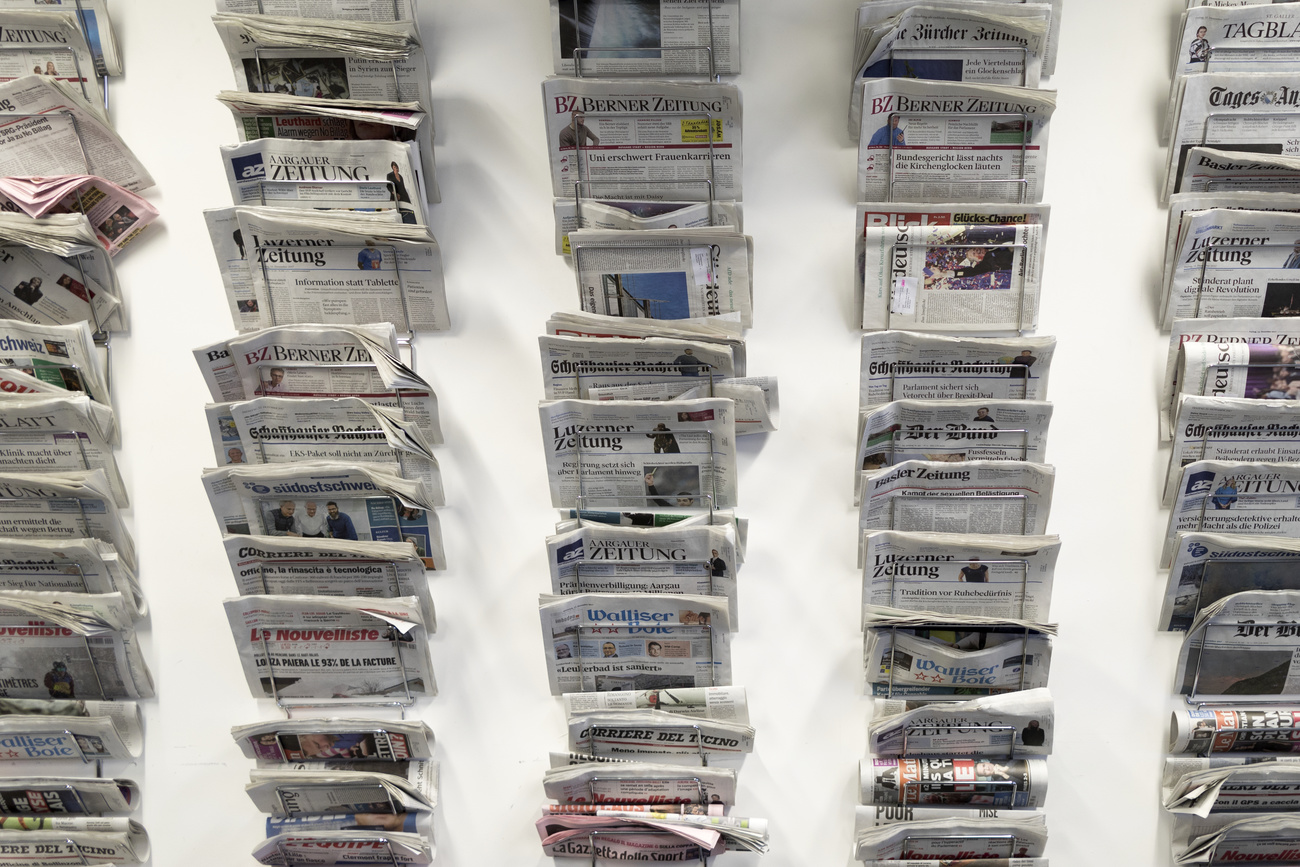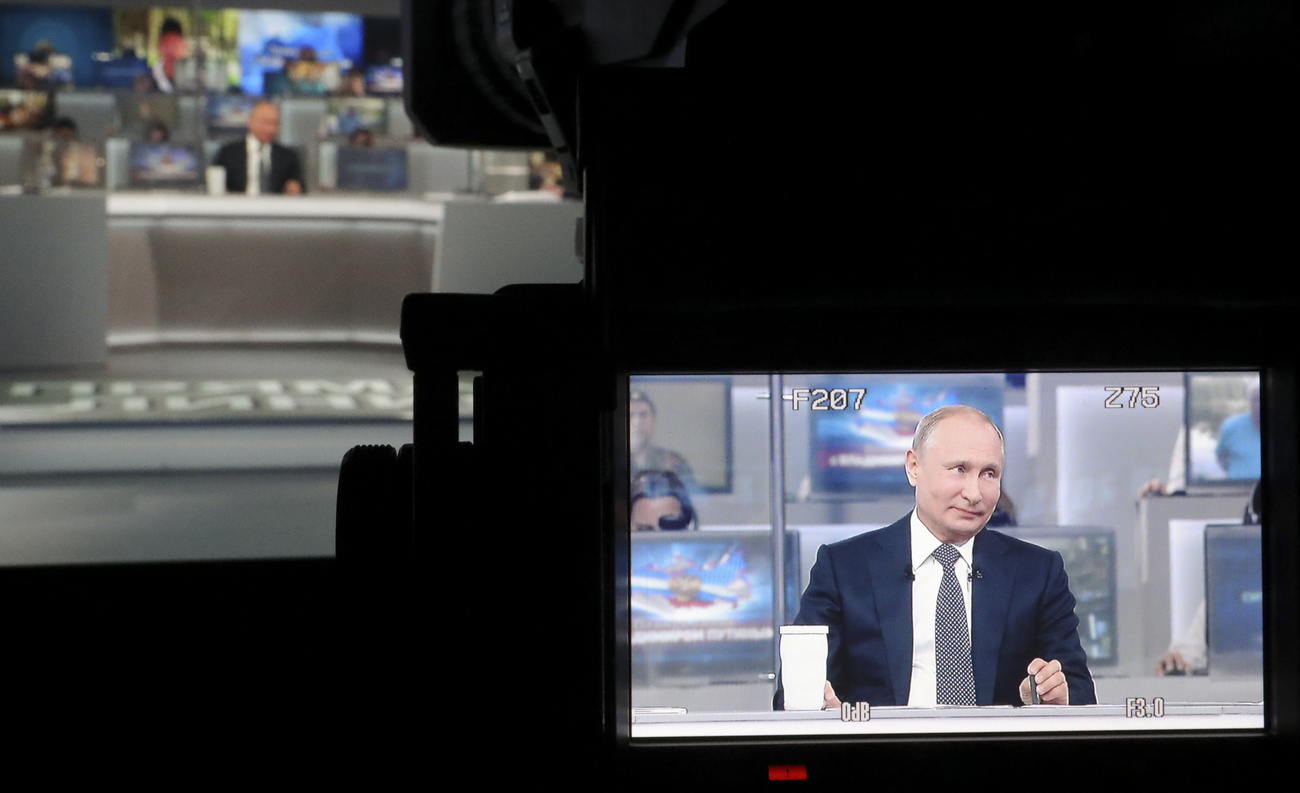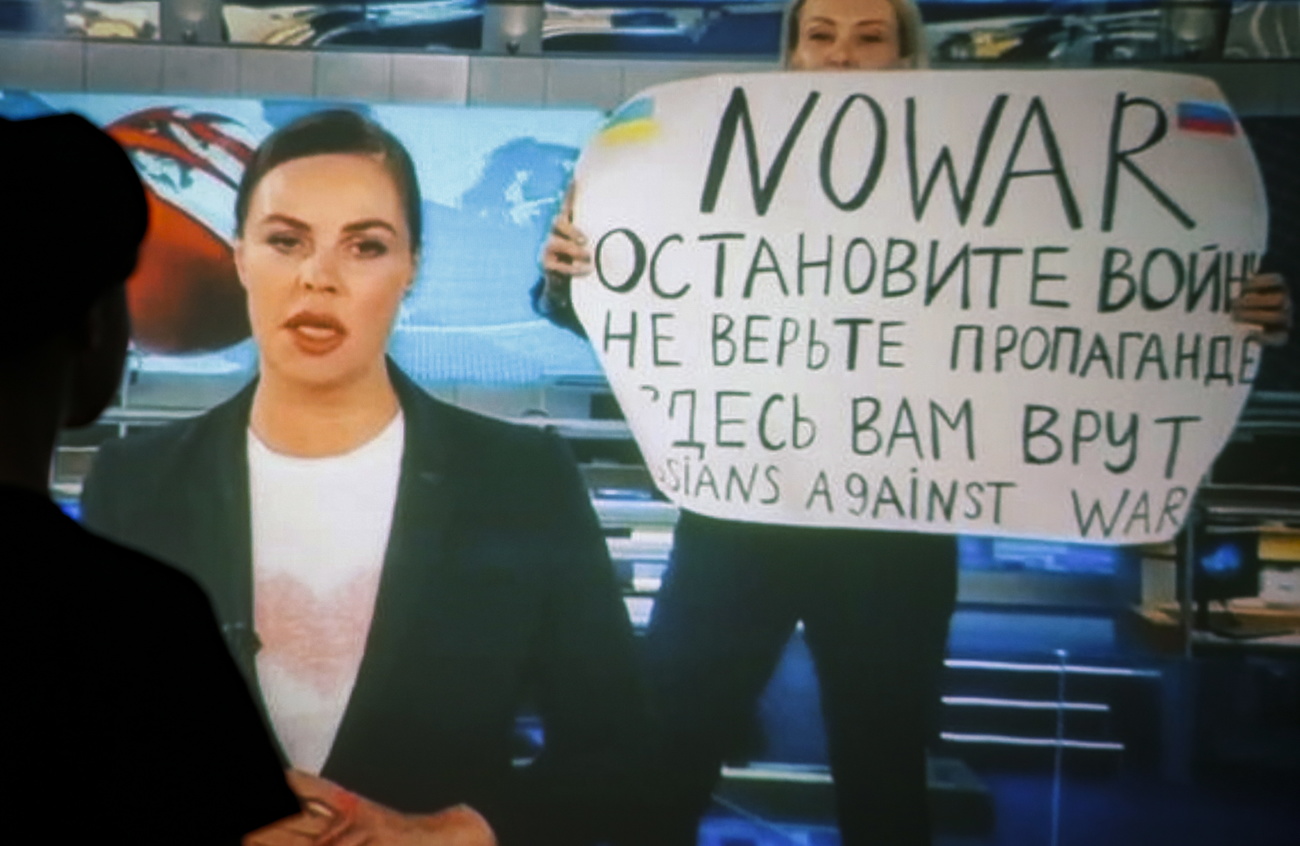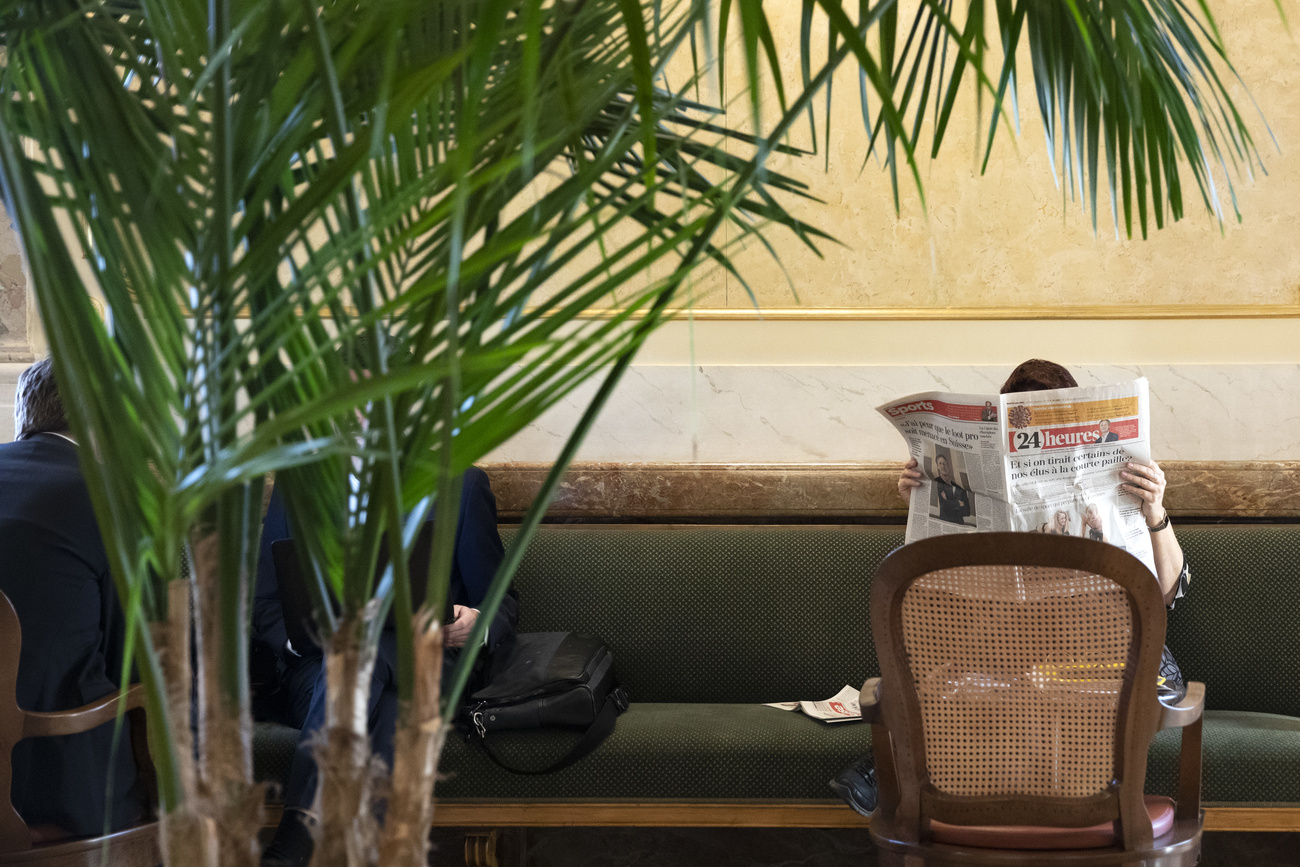Russian media in Switzerland: A mix of propaganda and anti-regime critics

Only a few Russian-language media exist in Switzerland. What is their position on Putin’s war? Here are some findings from our research.
Switzerland is not really a market for Russian media. Only 70,000 Russian speakers live here and the small Russian-speaking diaspora, which also includes Belarusians, Ukrainians, Georgians and Armenians, is spread across the different linguistic regions. Moreover, journalistic projects in Russian in Switzerland cannot rely on sponsorship from oligarchs, and the Swiss authorities are not interested in supporting Russian-language media.
That said, Russian is one of the ten languages offered by SWI swissinfo.ch, and readership of the Russian site has increased considerably since the start of the war.
Russian immigrants in Switzerland tend to be highly qualified, so they are not particularly interested in specialised migrant media. All this makes media projects in Russian virtually impossible for the Swiss market. Nonetheless, there are a few projects – each with its own profile, shaped by its own editorial policy. We contacted four Russian-language media in Switzerland and asked them to tell us about their journalistic mission. Three of them got back to us.
‘Against hatred’
Nadezhda Sikorskaya, editor-in-chief of Nasha Gazeta (Our Newspaper), was the first to react. The Geneva-based online portal was launched in 2007. Five years later, the editorial team began publishing a twice-yearly glossy edition of the portal’s best articles. “Our media project speaks out against war and hatred,” Sikorskaya says.
She did not wish to elaborate, but she advised us to take a look at the articles on the site, which we did. In recent years, the portal’s editorial team has maintained very close relations with Russian representatives in Switzerland, such as the Russian embassy in Bern and Russia’s mission to the UN in Geneva. From the first days of the war, Nasha Gazeta took a clear anti-war stance. Russia’s attack on Ukraine is presented as a tragedy, as a war that should not be.
The statement that Nasha Gazeta is “against hate” is worthy of closer analysis. The portal’s reporting voices the explicit fear of a campaign against the Russian language and Russian culture. Its articles repeatedly lament that representatives of Russian culture are being excluded from competitions, festivals and projects.

More
Switzerland slaps more sanctions on Russia
Russian-speaking platform
Marina Karlin also responded. She is the director and editor-in-chief of a media project, which was called “Russian Switzerland” when it was founded in 2004, and is now known as “RS/Everything about Switzerland in Russian”*. The project started out as a print publication and later gained an online version. According to Karlin, the magazine now appears eight times a year. The March 2022 issue came out before the war; the next issue is ready but has not yet been published.
The war does not appear prominently on the magazine’s website. At the time of writing, the last four news items were about the record birth rate in Switzerland, a village for people suffering from dementia, electric bicycles and a court decision on Swiss vaccination practices. There was no trace of the war.
“We expressed our anti-war stance in the hashtags and the choice of topics in the last issue,” Karlin says. That looked at how attitudes to neutrality were changing in Switzerland and how some Russians were fleeing to Switzerland. “There was even a piece by an author from Kyiv,” she says.
The magazine’s Telegram channel is more up-to-the-minute in its reporting. Here too, though, there are no obvious position statements, although there was at least information about the Swiss foreign ministry’s reaction to the killings of civilians in Bucha.
Private blog against war
There is, in this small market, also the private blog project “Switzerland for all”/ schwingen.net, by the poet and journalist Marina Ohrimovskaya.
According to its website, it is a “civil society initiative based on Swiss law”. Since the start of the war, the project has clearly expressed its anti-war stance, based on a concrete socio-political position. The portal reflects the entire anti-war and anti-Putin newsfeed on the internet in Russian, publishes announcements and reports on anti-war rallies and offers practical information for refugees from Ukraine in Switzerland.
Ohrimovskaya responded to our enquiry as follows: “Since Putin’s troops attacked the sovereign European state of Ukraine, thousands of people in Switzerland have demonstrated against the war. We share their feelings. Ukrainians and Russians are dying in the war unleashed by Putin’s criminal regime. These socially relevant issues are extremely important for ‘Switzerland for all’.”

More
How to counter lies and propaganda in war zones
Under the Kremlin’s sway
This leaves the website “Swiss Afisha”, which did not respond to our enquiry. The project was launched by a professional photographer as a glossy publication in the early 2000s.
The website contains almost no original journalistic contributions. But it does reproduce, without comment, the story that “the US is developing drones that can carry capsules with toxic, radioactive and narcotic substances”.
We also noted on the site a report on a speech made by Swiss President Ignazio Cassis at the International Cooperation Forum Switzerland 2022 in Geneva. Cassis is quoted as saying that “Switzerland will continue to help Kyiv in the coming years, if Ukraine remains an independent country”. From this, the portal constructed the following headline: “Ignazio Cassis does not rule out the disappearance of Ukraine as a state”.
*Disclosure: SWI swissinfo.ch has a partnership with “RS”. Marina Karlin is a member of the SWI swissinfo.ch Public Council.
Translated from German by Julia Bassam

In compliance with the JTI standards
More: SWI swissinfo.ch certified by the Journalism Trust Initiative












You can find an overview of ongoing debates with our journalists here . Please join us!
If you want to start a conversation about a topic raised in this article or want to report factual errors, email us at english@swissinfo.ch.